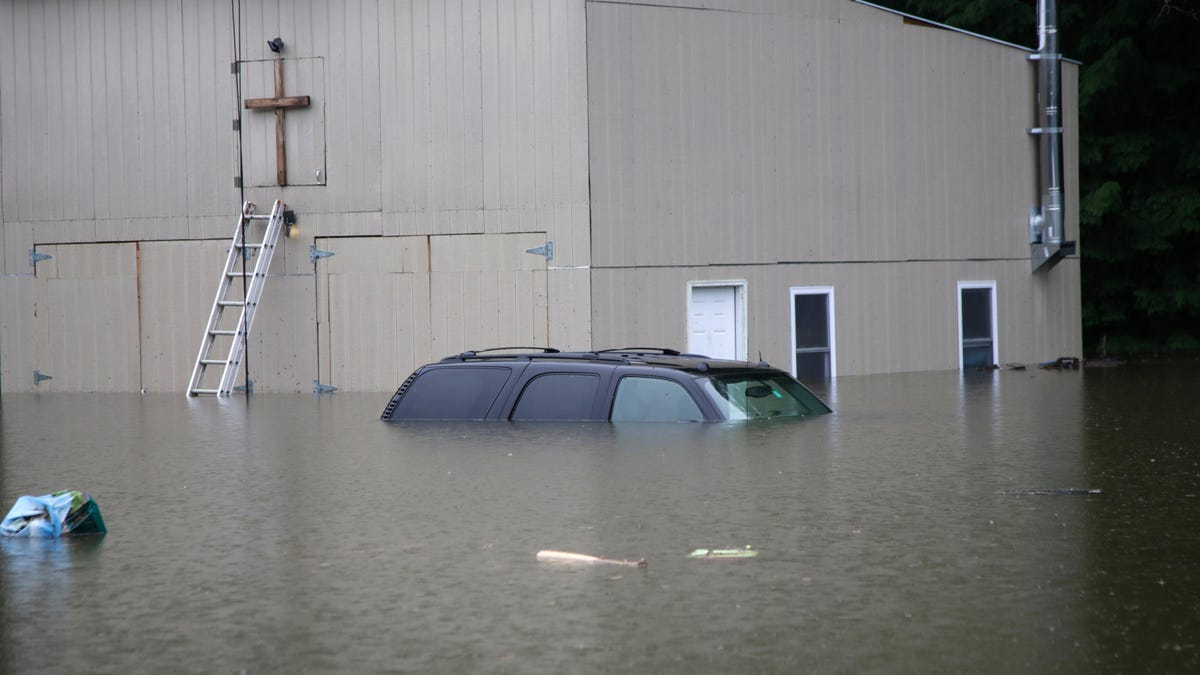While used car prices are still high, inventories are improving. Unfortunately, the last few years of extreme weather means thousands more flood damaged cars hit the market every year. With the recent flooding in New England, Consumer Reports says buyers should be prepared to be on the lookout for flood damaged vehicles hitting your local Facebook and Craigslist pages.
Data from Carfax shows that nearly 400,000 flood damaged vehicles hit the used market in 2022. While some shoppers may go into the market looking for a vehicle that has visible flood damage, these vehicles have often been repaired to such an extent that a buyer can’t see the damage, as water damage usually centers around electronics.
Often this damage isn’t reported on a vehicle’s official history report. If there is some kind of official document saying that the vehicle has water damage, it often shows up on the vehicle’s title.
Too often, when an insurance company declares a flood-damaged car a total loss, that information isn’t communicated to potential buyers. Once a flood car is totaled, it’s supposed to get a new title, called a salvage title. Those titles are usually plainly marked (known as being “branded”) with the word “salvage” or “flood.” In some states, this warning is shown on the title as an obscure letter or number code.
But as Consumer Reports found years ago in an investigation of rebuilt wrecks, some flood-damaged vehicles reappear with a clean title. Be especially wary of any used car being offered with a “lost” title or with only a bill of sale.
Consumer Reports says that there are multiple tools available to buyers that want to check whether a vehicle has prior water damage. The main tool buyers should use is the National Motor Vehicle Title Information System. A government backed site, the database is supposed to “crack down on the practice of ‘title washing,’ when cars that have been totaled (or stolen) get clean new titles in states with lax regulations.” There are also tools like Carfax’s free flood damage check, and the National Insurance Crime Bureau’s VINCheck. Or you could just get a good ol’ fashioned detailed inspection if you really want to be sure. Taking any of these steps can insure you’re driving a safe vehicle and save you thousands in repair costs.

